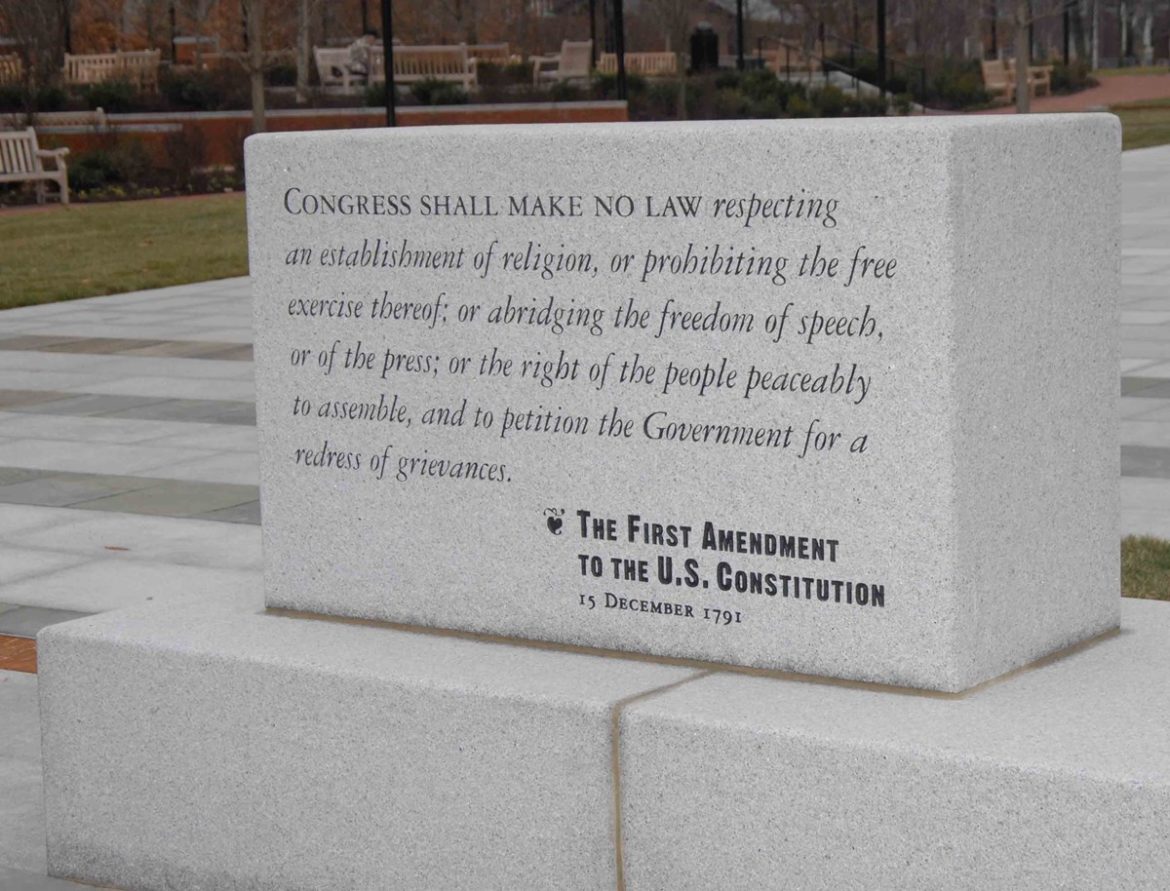Editor’s note: The Telegraph of Nashua shared this editorial opposed to House Bill 1157 with InDepthNH.org and other media. InDepthNH.org stands with The Telegraph, the New Hampshire Press Association and news outlets across the state in opposition to HB 1157.
By The Telegraph of Nashua
Newspapers are living history books, cataloging moments in time as they happen. The role of any news organization, including The Telegraph and its sister papers, is to convey accurate information at the time of reporting, while choosing what content to produce based upon the freedoms protected by the First Amendment.
That amendment clearly states, “Congress shall make no law … abridging the freedom of speech or of the press.” Though it protects members of the media, it also blankets every United States citizen with these and other hallmarks of freedom.
State Rep. Jack Flanagan, R-Brookline, has introduced House Bill 1157 in stark contrast to the First Amendment, in an attempt to regulate where, when and how the media reports about criminal proceedings.
HB 1157, as proposed, reads, “the failure of a New Hampshire news media organization to update, retract, or correct an Internet published story concerning a criminal proceeding against a named person, immediately following written notification of the media organization by the injured person of a subsequent finding of not guilty, acquittal, or dismissal of the charges against such person in a criminal proceeding, shall result in the liability of the New Hampshire news media organization for any damages incurred by the person caused by such failure.”
This bill is set for a hearing Wednesday in the state’s House Judiciary Committee. We join with the New Hampshire Press Association, its members and media outlets throughout the Granite State to urge lawmakers to kill this proposed bill.
There are many issues with HB 1157, but before we debate those it is important to note many who contact The Telegraph to address any type of criminal or court proceeding in which they were named do so not in an effort to have such coverage updated. Instead, they want to erase history.
This means offers to update an arrest story or criminal proceeding coverage with a final verdict, dismissal or other outcome often isn’t good enough. Those impacted usually don’t want an editor’s note clarifying the status of an arrest or case.
What is requested — most frequently — is the equivalent of a PR wash of any mention of the initial event that prompted news coverage. At The Telegraph, we try to work with requests to accurately update stories. Individuals who seek these updates are asked to provide verifiable proof from a law enforcement or court source as to the outcome of a pending legal matter. They then are reviewed on a case-by-case basis.
It is not the job of any media, including newspapers, to redact or rewrite history.
And neither the government nor the public good can have it both ways. Law enforcement often seek the media’s help to identify suspects, sometimes providing images from alleged crime-scene footage. In those cases, no one has even been arrested or charged. Yet, the publication of those photos or descriptions, which may be identifying to a person or persons, is relevant to public safety on that particular date at that particular time.
The same can be said of arrest logs, initial coverage of court hearings and other legal proceedings. It should not matter the format in which this content is published. Media have the right to choose any public record at any time for publication. Whether that occurs in print, online, via radio, TV or other form of media is irrelevant.
Newspaper archives have existed since The Telegraph’s inception as a weekly in 1832. The government — since the First Amendment was adopted in 1791 — has not been able to limit or compel what is published. It cannot abridge or lessen the content we publish any more than the government can abridge or lessen our right to publish what we choose and when we choose to do so.
HB 1157 clearly infringes on the news media’s right to control its own content and editorial decisions. There is a long line of U.S. Supreme Court cases showing that state and federal governments are prohibited from legislating what stories the media may publish and that state and federal governments may not compel the publication of editorial or advertising content.
One such example is the Miami Herald Pub. Co. v. Tornillo, 218 U.S. 241 (1974). In that case, the Supreme Court ruled a Florida “right-to-reply” statute requiring newspapers to print the response of political candidates to any negative articles published by the newspaper violated the First Amendment. The High Court noted, “The clear implication has been that any such compulsion to publish that which ‘reason’ tells them should not be published is unconstitutional. A responsible press is an undoubtedly desirable goal, but press responsibility is not mandated by the Constitution and like many other virtues it cannot be legislated.”
In that same case, then U.S. Supreme Court Justice Byron White wrote, “according to our accepted jurisprudence, the First Amendment erects a virtually insurmountable barrier between government and the print media so far as government tampering, in advance of publication, with (sic) news and editorial content is concerned. New York Times Co. v. United States, 403 U.S. 713, 91 S.Ct. 2140, 29 L.Ed.2d 822 (1971). A newspaper or magazine is not a public utility subject to ‘reasonable’ governmental regulation in matters affecting the exercise of journalistic judgment as to what shall be printed.”
Media outlets across the Granite State strive each day to present the most comprehensive and accurate local reports the day of publication. After that, coverage becomes historic information.
New Hampshire’s news media should not be shackled by the state Legislature to change the very foundation on which news is gathered and reported. Correcting a legitimate error is one thing, but being mandated to rewrite history to present day is unconstitutional.





